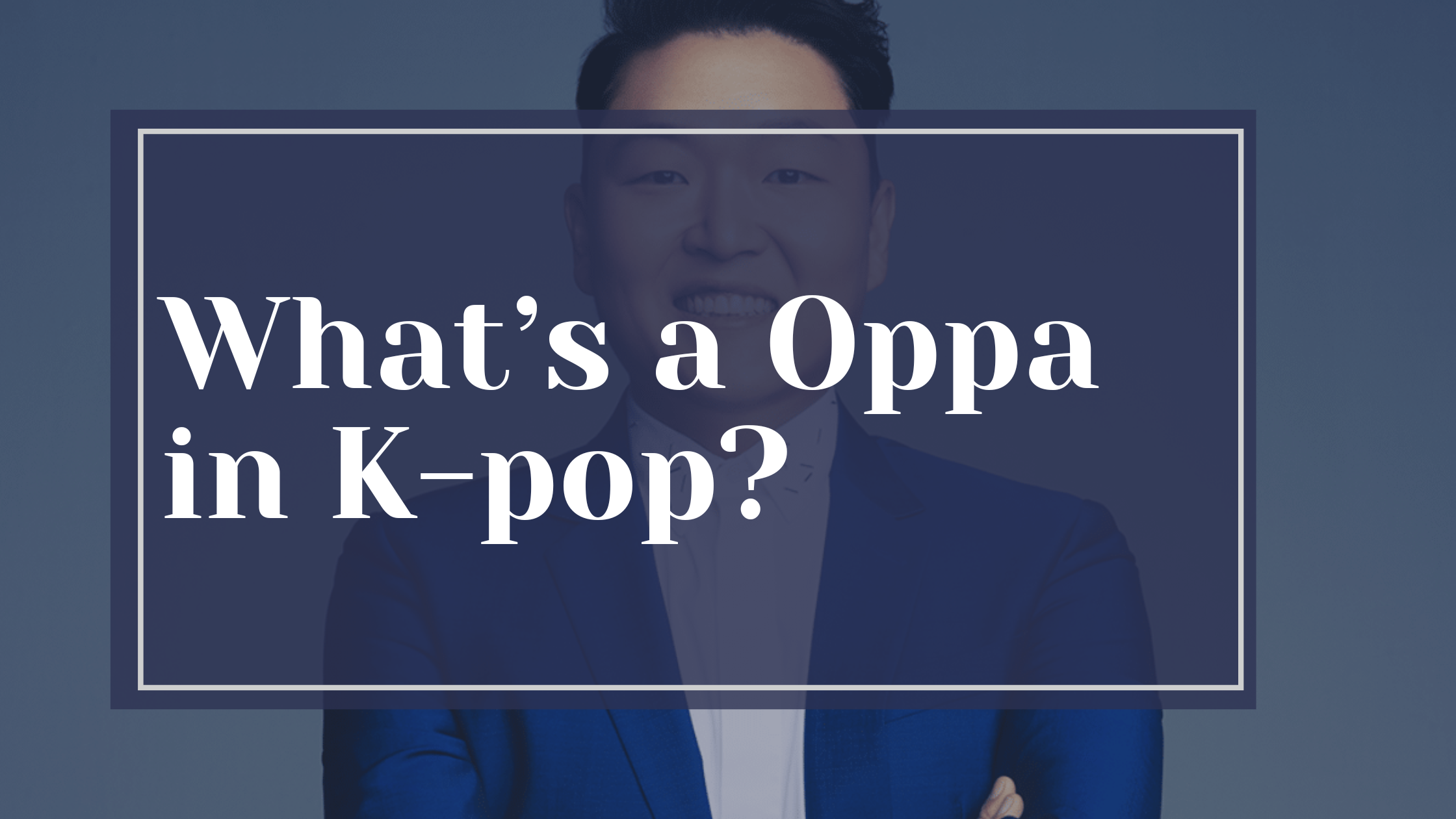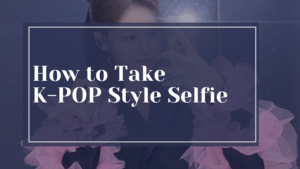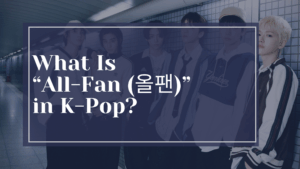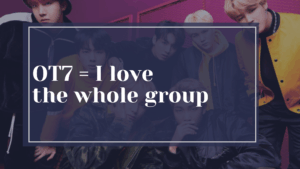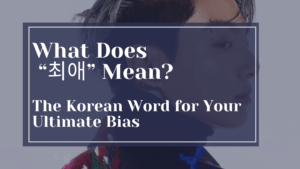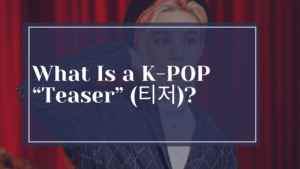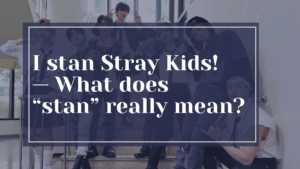If you’re a K-pop fan, you’ve definitely heard someone say “oppa.”
But what exactly does it mean? And why does it spark so many emotions—from swooning fans to cultural confusion?
In this article, we’ll break down the meaning and use of oppa, and explore why this one word carries so much weight in K-pop culture.
💌 Want more K-POP deep dives like this?
Subscribe to Hello Bias Letters, our free Substack newsletter!
Each week, we unpack K-POP culture with care—from fan behavior to behind-the-scenes stories.
→ Join us here
What Is “Oppa”? Meaning and Usage
The Korean Word “오빠 (Oppa)”
“Oppa” (오빠) is a Korean word that means “older brother”—but only when spoken by a younger woman.
In real life, girls and women use oppa to refer to their older brothers, older male cousins, or close older male friends.
But that’s not where it ends.
What Does “Oppa” Mean in K-pop?
In the K-pop world, oppa has taken on a life of its own.
Fans—especially women—often call their favorite male idols oppa as a term of affection.
It can sound cute, flirtatious, or deeply emotional, depending on how it’s used.
Among idols themselves, female idols may call male idols oppa if they’re close and the age gap fits.
But even male idols jokingly refer to themselves as oppa during fan service!
⚠️ Cultural Note: Don’t Call Just Anyone “Oppa”
In K-pop, oppa is everywhere—screamed at concerts, written on fan signs, and sprinkled through livestream chats.
But in real-life Korean culture, you can’t just call any older guy oppa.
Oppa is based on relationship, not just age.
It’s used by women for older men they know personally—like a brother, close friend, or boyfriend.
Using oppa with someone you’ve just met (especially in Korea) can feel awkward or even inappropriate.
It implies a certain emotional closeness, and using it too soon can come off as overly familiar or flirty.
Even among Korean speakers, not every older male friend becomes oppa—sometimes the vibe just isn’t right.
So while it’s fun and totally okay to say “Jungkook oppa!” as a fan,
calling your Korean language teacher or coworker oppa? Maybe not.
3 Common “Oppa” Types in K-pop
Let’s take a playful look at the kinds of oppas you’ll see in the K-pop world (just for fun!).
The Classic Boyfriend-Type Oppa
(Example: Jin from BTS, Cha Eunwoo from ASTRO)
This is the oppa that fans swoon over—the ideal older guy: handsome, sweet, and caring.
Whether it’s offering a warm smile or saying “Did you eat?” in a V Live, this oppa makes you feel seen.
The Playful Teasing Oppa
(Example: Baekhyun from EXO, Heechul from Super Junior)
This oppa will tease you nonstop—but it’s all love.
He’s the type to joke around during fan signs and keep things fun.
You never know what he’ll say next, but it’s always entertaining.
The Protective “Big Brother” Oppa
(Example: Bang Chan from Stray Kids, Suho from EXO)
This oppa looks out for everyone. He gives advice, comforts members, and holds things together behind the scenes.
He might not always be loud, but his presence is strong.
There’s no one way to be an oppa.
Each idol brings their own flavor—whether it’s soft and sweet, loud and chaotic, or calm and steady.
Common English Phrases Fans Use for “Oppa”
- “He’s my ultimate oppa!”
For your #1 bias who lives rent-free in your heart. - “Oppa, notice me!”
Classic fan chant—playful, hopeful, iconic. - “Too many oppas, not enough time.”
For multi-stans who can’t pick just one.
Iconic Oppas in K-Pop
BTS: Jin
Known as “Worldwide Handsome,” Jin blends classic oppa visuals with dad jokes and genuine care for the members.
EXO: Suho
The textbook responsible oppa. Always checking on the team, always giving 100%, even when fans don’t notice.
Stray Kids: Bang Chan
The ultimate “protector oppa.” Leader, mentor, and emotional support all in one.
ASTRO: Cha Eunwoo
Visual king and sweet-talker. A dream oppa come to life.
Super Junior: Heechul
The unpredictable oppa who keeps things chaotic but never boring. A legend in fan service.
Final Thoughts: Who’s Your Ultimate Oppa?
Oppa isn’t just a word—it’s a feeling.
It can mean safety, affection, admiration, or even romantic fantasy.
In K-pop, oppa becomes a symbol of connection between idols and fans—one that crosses language and culture.
So… who’s your ultimate oppa?
Tell us in the comments—or scream it into the void like a true fan. We won’t judge.
Wanna know what Hyung, Noona and Unnie means too? Check out this one!
What Does “Hyung” Mean in K-Pop?
What Does “Noona” Mean in K-Pop?
What Does “Unnie” Mean in K-Pop?
💬 If you found this post helpful, consider supporting me with a coffee!
Your support keeps Hello Bias going ☕💛
👉 Buy Me a Coffee
